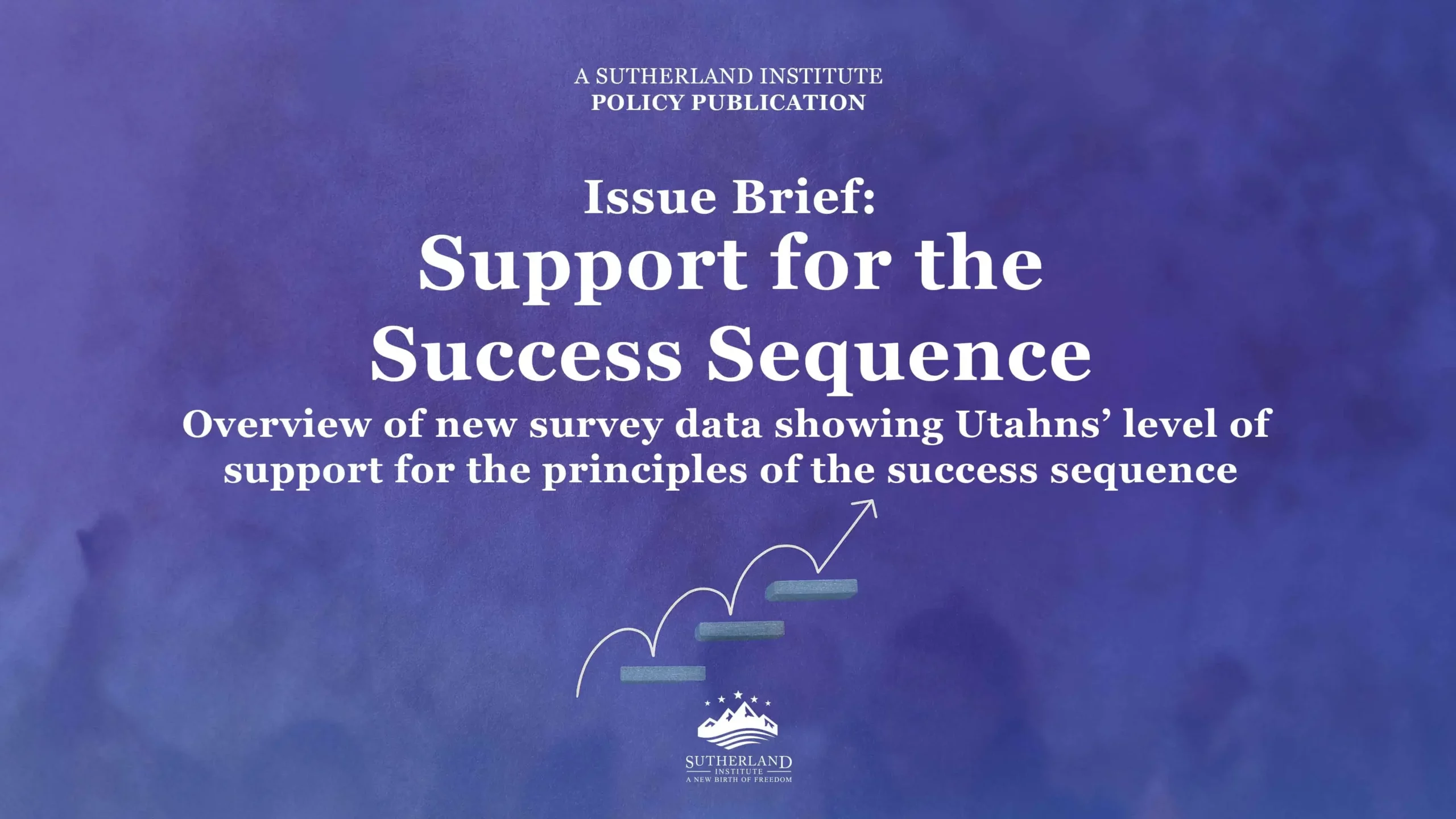
Written by Sutherland Institute
December 12, 2023
SALT LAKE CITY (December 11, 2023) – Most likely voters in Utah agree with the concepts of the success sequence and support teaching them in school, a new survey from Sutherland Institute finds.
Highlights from the survey:
-
73% of Utah’s likely voters support inclusion of the economic outcomes of the success sequence in school curriculum.
-
Strong majorities of Utah’s likely voters agree that graduating from high school (89%), working full time (86%), and marrying prior to having children (68%) are important steps to securing a successful and happy life.
-
Teaching the economic outcomes of the success sequence in schools has bipartisan support in Utah (80% of Republicans and 60% of Democrats).
The findings are highlighted in Sutherland’s newest publication, available here:
Sutherland partnered with Y2 Analytics to measure the attitudes of likely voters in Utah toward a series of life milestones known as the “success sequence”:
- completing high school education,
- working full time, and
- waiting until marriage to have children
Research has shown that 97% of young people who follow this sequence do not experience poverty in adulthood.
For more information about the success sequence, visit sutherlandinstitute.org/success
###
Media Contact:

More Insights
Read More
Can AI make education more human? | Caleb Hicks
Teachers are stretched thin, but artificial intelligence could help.
Utah school districts need better guidance on parent access to curriculum. Here’s what the state can do
Legislative clarity and stronger support from the State Board of Education could improve transparency and help parents stay engaged.
The transformative power of fatherhood: How being a dad elevates happiness, work, and civil society
American society as a whole would be well served to consider the fact that fatherhood is a powerful source of personal flourishing and social renewal.



